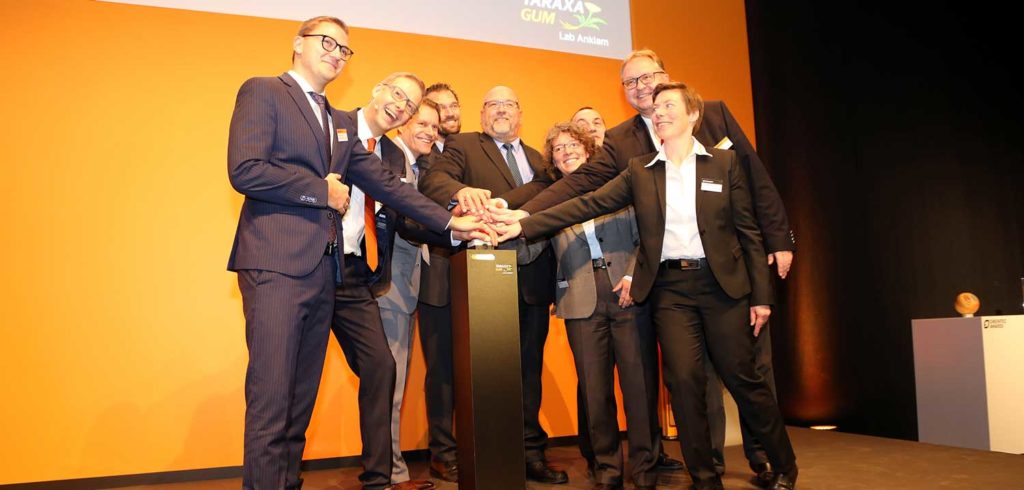Continental has inaugurated its research laboratory named Taraxagum Lab Anklam in Anklam, Mecklenburg-Western Pomerania, Germany. Construction for the 30,000m² (323,000ft²) building began in November 2017 and was completed within schedule.
Research there will focus on farming and the extraction process of Russian dandelion as an alternative raw material source to the rubber tree in the tropics. The tire manufacturer is planning to introduce the raw material into mass production in the next 10 years, in order to obtain an increasing proportion of its natural rubber demand from the dandelion plant.
Nikolai Setzer, member of the executive board of Continental and head of the tire division, said, “We are proud to inaugurate this lighthouse project today. We are the first tire manufacturer in the world to invest such a significant amount in industrializing dandelion rubber. We see Russian dandelion as an important alternative and complementary to conventional natural rubber from hevea brasiliensis, enabling us to meet rising global demand in an environmentally compatible and reliable way.”
Around 20 employees with background in agricultural sciences, chemistry, and production and process technology will research plant cultivation and look at developing, setting up and operating machines for processing Russian dandelion at the new location.
The Ministry of Economic Affairs of the state of Mecklenburg- Western Pomerania supported the project with a €11.6m (US$13.2m) grant, with the prospect of creating jobs locally. The facility creates opportunities for farmers in the region and cultivators, too.
“With the opening in Anklam, a foundation has been laid for research and development in a new dimension and diversity. The new research laboratory is an important step toward future-oriented workplaces in Western Pomerania. It is our goal that with the success of the research project, a production plant for natural rubber arises. This enterprise contributes to more direct value creation and the local agriculture, as well as the industry in the region, will be strengthened equally,” commented Harry Glawe, minister of Economics, Employment and Health of Mecklenburg-Western Pomerania.
Dirk Prüfer, professor of plant biotechnology at the University of Münster (Westfälische Wilhelms-Universität Münster – WWU) and site director of the Fraunhofer Institute for Molecular Biology and Applied Ecology IME, Münster branch, explained, “We have been working to understand the molecular basis of the rubber biosynthesis in the dandelion plant for many years. This biological understanding has now brought industrial use within reach. With the new test laboratory, Continental has broken new ground that makes this transfer concept highly visible.”



